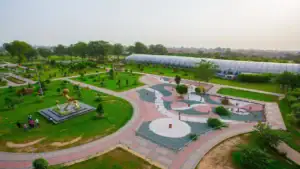Washigton/Islamabad, March 19: The World Bank’s Board of Directors has approved a $102 million financing package for the Resilient and Accessible Microfinance (RAM) Project, aimed at enhancing access to microcredit and bolstering the resilience of the microfinance sector, particularly in the face of climate-related challenges.
The project is designed to benefit nearly 1.89 million people, including over 1 million women and more than 350,000 youth, with a focus on low-income and rural communities.
By providing financial support to microfinance institutions (MFIs), the project will ensure continued access to essential financial services, even under climate-induced financial pressures.
It will also facilitate microcredit for individuals and small businesses and provide recovery loans to help borrowers regain financial stability.
Najy Benhassine, World Bank Country Director for Pakistan, emphasized that microfinance plays a critical role in supporting the livelihoods of vulnerable populations in Pakistan, particularly in rural areas.
Microfinance Sector Benefits Poor
He noted that the RAM Project aligns with the World Bank’s broader commitment to promoting financial inclusion and building resilience against climate change in Pakistan, as outlined in the new 10-year Country Partnership Framework.
Read More: World Bank $20B Pledge to Transform Pakistan in 10 Years
The project is built on lessons learned from the catastrophic floods of 2022 and will support women, small farmers, and rural families who are especially vulnerable to climate shocks, helping them build economic resilience and financial stability.
Namoos Zaheer, Task Team Leader for the Project, highlighted that the initiative marks a significant step in strengthening financial inclusion in Pakistan, with a particular focus on empowering those most affected by climate risks.
The RAM Project will be implemented by the Ministry of Finance through the State Bank of Pakistan (SBP) and is the first in a series of interventions designed in collaboration with international financial institutions to support the microfinance sector.
MFIs and Climate Risk
Key components of the project include the establishment of a Climate Risk Fund to protect MFIs from climate-induced financial challenges.
The use of agrotechnology solutions to support farmers and small businesses, and capacity-building programs for MFIs to enhance risk management and financial resilience.
Also Read: World Bank Directors Review $40 Billion Investment Plan for Pakistan
Additionally, the project will develop advanced risk management frameworks to ensure the long-term sustainability of the microfinance sector.
The project is co-financed with a $23 million grant from the Global Shield Financing Facility (GSFF), a multi-donor trust fund managed by the World Bank Group.
The GSFF, funded by Canada, Germany, Japan, Luxembourg, and the United Kingdom, aims to support climate-vulnerable countries by enhancing financial protection against climate-related disasters and crises.









